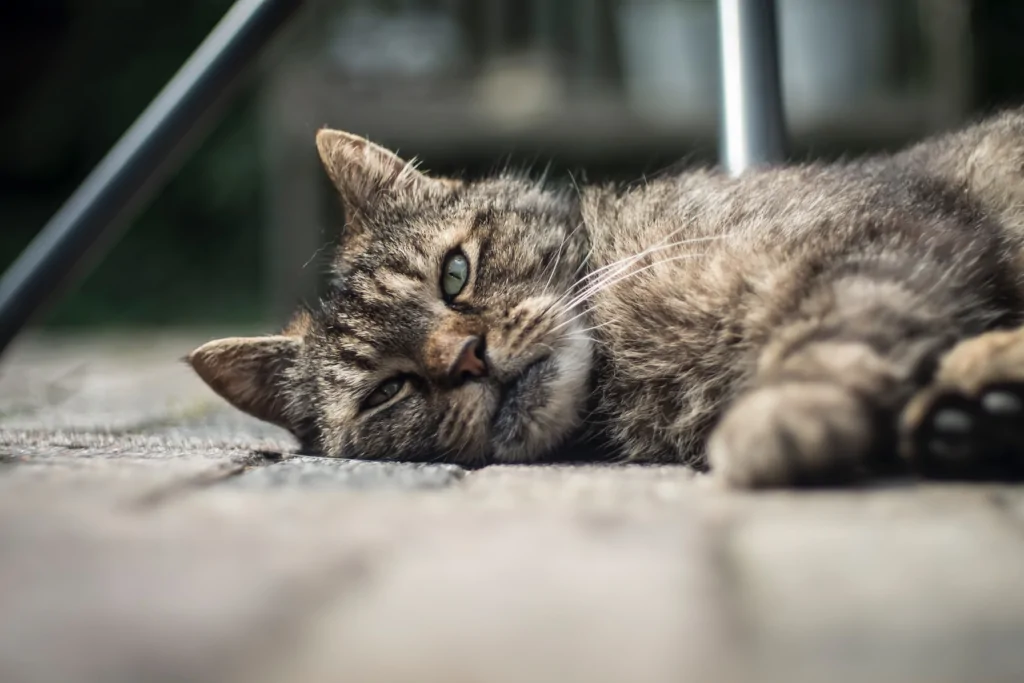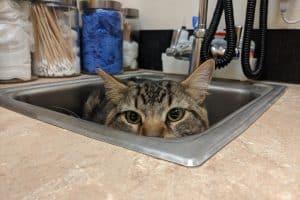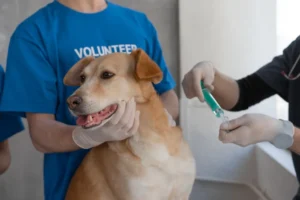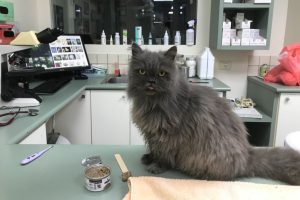As a cat owner, it’s natural to worry about your feline friend’s health and wonder how often they get sick. With various factors influencing their well-being, it can be hard to know what to expect.
To help your cat stay in tip-top shape, it’s essential to understand the common health issues they may face and how to spot the signs of illness early on. Dive into this article to learn more about keeping your cat healthy and happy.

How Frequently Do Cats Fall Ill?
The frequency at which cats fall ill is influenced by the factors mentioned above: age, lifestyle, and overall health.
For instance, kittens and senior cats are generally more susceptible to illness due to their weaker immune systems, while indoor cats may have fewer health risks compared to outdoor cats.
Age and Health Status
Kittens, particularly those under six months of age, can be prone to infections as their immune systems are still developing. On the other hand, senior cats often face age-related health issues, such as arthritis or kidney problems, which might increase their risk of illness.
Indoor vs. Outdoor Cats
Outdoor cats are exposed to a greater variety of potential health hazards, such as parasites, injuries from fights, or contact with infectious diseases. In contrast, indoor cats generally have a more controlled environment and fewer risks, leading to a lower likelihood of falling ill.
Preventive Measures and Regular Checkups
Regular vet checkups and vaccinations are crucial in keeping your cat healthy. By ensuring your cat’s vaccinations are up-to-date and addressing any health concerns promptly, you can minimize the chances of them falling ill.
Many cats with outdoor access often need extra protection to reduce the risk of diseases.
My cat’s story:
Understanding the factors that influence a cat’s health is essential in determining how often they may fall ill. By being aware of these factors and taking appropriate preventive measures, you can help ensure your cat remains healthy and happy.
Are Indoor Cats Less Likely to Get Sick?
Indoor cats tend to be less prone to illness compared to their outdoor counterparts. The controlled environment of an indoor cat’s life offers protection from various hazards and risks.
For example, they’re less likely to encounter other animals that could potentially spread diseases or parasites. This means indoor cats can generally enjoy a healthier life.
My cat Smokey is an indoor cat, and I’ve noticed how much healthier he seems compared to my friend’s outdoor cat, who often comes home with scratches from fights or even ticks. Smokey’s cozy indoor life has helped him avoid many of these issues, and I feel more at ease knowing he’s safe from potential dangers.
Common Health Issues in Cats
Even with their advantages, indoor cats can still face certain health issues. Some common health problems that affect cats include:
- Upper respiratory infections
- Urinary tract infections
- Diabetes
- Dental problems
- Obesity
It’s essential to be aware of these common health issues and take necessary precautions to keep your cat healthy. For a more in-depth look at these issues and how to address them, check out our complete guide on the “5 Common Health Issues in Cats.”
As a cat owner, it’s crucial to keep an eye on your feline friend’s well-being and ensure they’re as healthy as possible. By staying informed and understanding the challenges indoor cats may face, you can make better decisions about their care and well-being.
Signs Your Cat Might Be Unwell
If you can recognize the signs of an unwell cat early, this will also make the world of difference in early intervention and treatment.
Some indicators that your cat might not be feeling well include changes in appetite, lethargy, vomiting, diarrhea, and excessive grooming or scratching.
For example, one day, I noticed Smokey was acting unusually quiet and didn’t touch his food – a far cry from his usual playful and hungry self. After a visit to the vet, it turned out he had a minor infection, which was treated promptly.
So, always pay attention to any changes in your cat’s behavior, as it might signal something is off.
How to Prevent Illness in Your Cat
To keep your cat healthy and prevent illness, it’s essential to provide a balanced diet, maintain a clean living environment, and ensure your cat receives regular veterinary checkups and vaccinations.
Don’t forget to engage your cat in daily play to promote physical activity and mental stimulation. Monitoring your cat’s health and addressing any concerns as soon as possible can help prevent more severe issues down the line.
FAQs
How can I tell if my cat is just under the weather or seriously ill?
Monitor your cat for any changes in behavior, appetite, or energy levels. If symptoms persist or worsen over a few days, consult your veterinarian for a professional assessment.
What are some common illnesses in cats?
Common illnesses in cats include upper respiratory infections, urinary tract infections, diabetes, dental problems, and obesity.
Are vaccinations necessary for indoor cats?
Yes, vaccinations are essential for indoor cats, as they protect against contagious diseases that can still affect them, despite living indoors.
How can I help my cat build a strong immune system?
Ensure your cat receives a balanced diet, regular exercise, proper grooming, and timely vaccinations to help them maintain a robust immune system.
Alex, a passionate animal lover, has experience in training and understanding animal behavior. As a proud pet parent to two dogs and three cats, he founded AnimalReport.net to share insights from animal experts and expand his knowledge of the animal kingdom.









